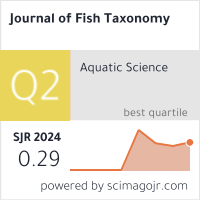Effectiveness of Nurse-Led Interventions on Knowledge and Health Behaviours in Adolescents with Sickle Cell Anaemia
Keywords:
Sickle Cell Anemia; Adolescents; Nurse-Directed Intervention; Knowledge; Health Promotion; Quasi-Experimental StudyAbstract
Background: Sickle Cell Anemia (SCA) is a chronic hereditary disorder associated with recurrent complications, poor quality of life, and high healthcare burden. Adolescents are particularly vulnerable due to limited disease knowledge and inconsistent adherence to health-promoting behaviors. Nurse-directed interventions have the potential to bridge this gap by enhancing patient knowledge and encouraging healthier practices. Objective: This study evaluated the effectiveness of nurse-directed interventions in improving knowledge and health promotion behaviors among adolescents with SCA. Methods: A quasi-experimental study was conducted among 200 adolescents (aged 10–18 years) diagnosed with SCA at two tertiary hospitals in Vadodara, India. Participants were randomly assigned to experimental (n=100) and control (n=100) groups. The experimental group received a six-week structured nurse-led intervention comprising educational sessions, counseling, and lifestyle-modification strategies, while the control group received routine care. Pre- and post-test assessments were conducted using validated questionnaires. Data were analyzed using paired and unpaired Z-tests and Chi-square tests. Results: In the experimental group, mean knowledge scores improved significantly from 7.3 to 15.1 (p < 0.001), and health behavior scores increased from 90.0 to 101.1 (p < 0.001). In the control group, knowledge improved from 9.67 to 17.24 and behavior scores from 68.85 to 86.75 (both p < 0.001). Between-group comparison revealed a significant difference in health behavior improvement (p = 0.021), while knowledge differences were not statistically significant (p = 0.69). Demographic variables such as age, sex, family type, and father’s occupation showed significant associations with baseline scores. Conclusion: Nurse-directed interventions effectively enhanced knowledge and health-promoting behaviors in adolescents with SCA. Tailoring such interventions to demographic characteristics may further optimize patient outcomes.








